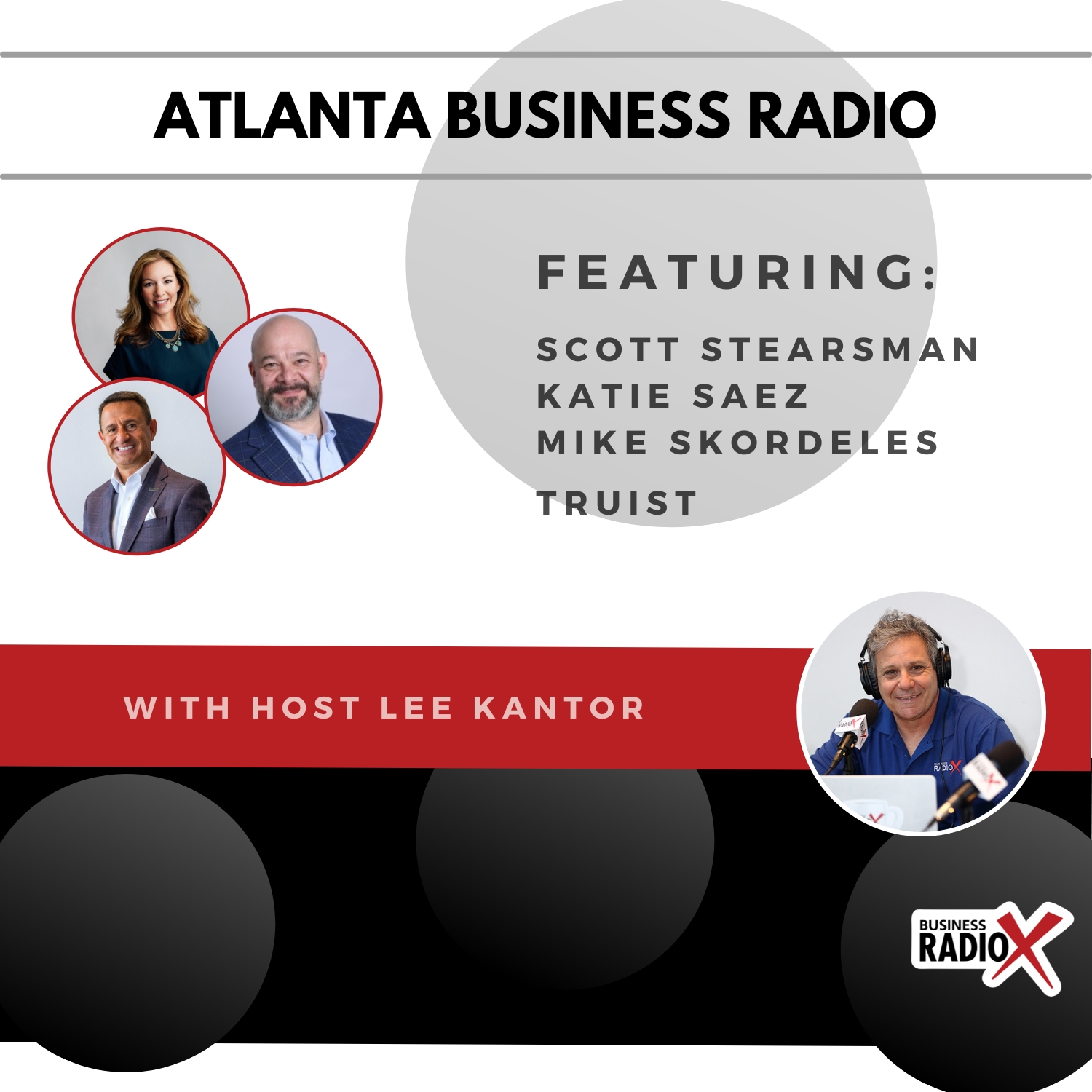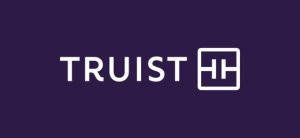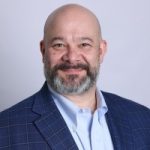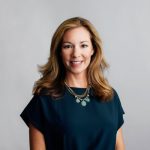
In this episode of Atlanta Business Radio, Truist representatives Scott Stearsman, Katie Saez, and Mike Skordeles join Lee Kantor to discuss the findings of the small business pulse survey. The survey highlights the resilience and adaptive strategies of small business owners amidst financial challenges and economic uncertainty. Scott discusses Truist’s investment in technology and market expansion, while Mike talks about the Southeast’s robust growth, particularly in Atlanta. Katie speaks to the optimism in Atlanta’s business community, driven by the city’s growth and diversity.
The conversation also covers Truist’s commitment to providing personalized support and resources to small businesses, emphasizing the importance of building strong relationships with bankers for business success. Follow Truist on LinkedIn and Facebook.

 Mike Skordeles is head of U.S.economics and a senior vice president at Truist Advisory Services, Inc. He’s responsible for analyzing the U.S. and global economies and financial markets as well as helping formulate and communicate investment strategy, and publishing commentaries for our clients.
Mike Skordeles is head of U.S.economics and a senior vice president at Truist Advisory Services, Inc. He’s responsible for analyzing the U.S. and global economies and financial markets as well as helping formulate and communicate investment strategy, and publishing commentaries for our clients.
Mike is based in Atlanta as part of the firm’s Investment Advisory Group. He is a sought-after speaker, sharing his insights with investor and industry groups as well as C-suite executives. He’s been quoted in Bloomberg, the New York Times, and CNN.com, and has appeared on CNBC, among other media outlets.
Mike joined Truist predecessor SunTrust in 2012 and brings more than 25 years of investment experience to the Investment Advisory Group. He came from Morgan Keegan (now part of Raymond James), where he was a managing director and market strategist for over five years, writing extensively about the markets and the economy. He was a memberof the firm’s investment strategy committee and helped managed about $1.6 billion, serving as the portfolio manager overseeing the group’s tactical portfolio.
From 1999 to 2007, he was with McDonald Investments in Cleveland,Ohio, in a similar role as an analyst and strategist. He was a member of the firm’s investment policy committee and other investment steering committees. Previously, he was a financial analyst at KeyCorp and began his career with Prudential.
Connect with Mike on LinkedIn.
 Scott Stearsman is the head of small business banking for Truist Financial Corporation. In this role, he is responsible for the small business banking segment and the delivery of financial products and services to more than 1 million small business owners and entrepreneurs.
Scott Stearsman is the head of small business banking for Truist Financial Corporation. In this role, he is responsible for the small business banking segment and the delivery of financial products and services to more than 1 million small business owners and entrepreneurs.
His responsibilities also include oversight of Truist’s Small Business Virtual Channel, which offers consultive expertise and tailored advice via a large network of banking professionals.
Enhanced by Truist’s digital capabilities, the team is designed to meet small business owners at all points of their business life cycle, including direct portfolio relationship management for small business clients up to $10 million and delivering SBA lending services through Truist’s SBA Business Development Officers’ advisory-driven approach.
Prior to being named to this position in 2022, Stearsman was the mid-south consumer banking market executive at Truist. In this role, he was responsible for leading teams across 800 branch locations in six states, providing personal and small business banking for the retail community banking segment. Stearsman joined Truist in February 2013 as the northeast market sales executive and served as the Head of Branch and Premier Banking prior to merger.
With more than 20 years of banking experience, Stearsman previously held several senior roles at Bank of America including northeast region executive, North Carolina market executive, and consumer segment strategy executive. Stearsman is passionate about giving back to the community and is currently a board member of United Way Greater Atlanta and the SCORE Foundation. Stearsman is a graduate of the University of Kentucky where he earned a Bachelor of Science degree with a double major in finance and marketing.
Stearsman is based in Atlanta, where he lives with his wife, Julie, and two sons, Ryan and Sam.
Connect with Scott on LinkedIn.
 Katie Saez is Executive Vice President and Georgia Regional President for Truist Financial Corporation.
Katie Saez is Executive Vice President and Georgia Regional President for Truist Financial Corporation.
In this role, Ms. Saez serves as the senior leader in the Georgia Market, responsible for directing and integrating client management business development efforts with privately-held companies operating in the commercial and middle market sectors, as well as nonprofit and governmental entities. Ms. Saez leads our Truist Atlanta Client Advisory Board and has direct oversight of the Truist Foundation and Trusteed Foundation Local Advisory Councils.
A 24-year veteranof the financial services industry, Ms. Saez joinedTruist (formerly SunTrust) in 2000. Previously, Ms. Saez was Head of Sales for the Corporate & Institutional Group, Wealth, and Specialty Treasury groups within wholesale payments. During her career at Truist, she has managed sales and marketing functions in multiple Lines of Business, developing successful programs to drive revenue, increase teammate effectiveness, and improve the client experience. She is a graduate of the SunTrust Commercial Banking Training Program.
Ms. Saez earned an MBA in Finance from Georgia State University and a BSBA in Finance from the University of Florida. She serves on the Board of Directors of Junior Achievement of Georgia and the Woodruff Arts Center Board of Trustees. Ms. Saez is an executive board member of the Metro Atlanta Chamber, an Executive Partner of Georgia Allies, and a member of the Atlanta Rotary. She also serves on the University of Florida Warrington College of Business Advisory Council.
Ms. Saez has been recognized by the Georgia Hispanic Chamber of Commerce as a 50 Most Influential Latino, by Georgia Trend as a 500 Most Influential Georgian, and by Atlanta Magazine as a 500 Most Powerful Leader. She is also a member of the Association of Financial Professionals, holding the Certified Treasury Professional accreditation. Ms. Saez is a native of Jacksonville, Florida.
Connect with Katie on LinkedIn.
![]() This transcript is machine transcribed by Sonix.
This transcript is machine transcribed by Sonix.
TRANSCRIPT
Intro: Broadcasting live from the Business RadioX studios in Atlanta, Georgia. It’s time for Atlanta Business Radio. Brought to you by Onpay. Built in Atlanta, Onpay is the top rated payroll and HR software anywhere. Get one month free at on Paycom. Now here’s your host.
Lee Kantor: Lee Kantor here another episode of Atlanta Business Radio and this is going to be a good one. But before we get started, it’s important to recognize our sponsor, Onpay. Without them, we couldn’t be sharing these important stories. Today on Atlanta Business Radio, we have a trio from Truist. We have Scott Stearsman, head of small business banking. We have Katie Saez, regional president, and we have Mike Skordeles, head of US economics. Welcome, Truist fam.
Scott Stearsman: Thanks, Lee. I appreciate you having us.
Lee Kantor: Well, absolutely. Let’s kick it off with Scott. Um, we’re here to talk about the Small Business Pulse survey, that report that was just released. Uh, can you tell us some of the takeaways?
Scott Stearsman: Yeah. Again, Lee, thanks for having us on today. And just for background, we conduct a tourist and annual survey every year that gives us insights on how our small business owners are feeling, the challenges they’re facing, and just overall small business sentiment and what’s on their minds. And that insight allows us to really determine how we can best support our small businesses. So similar to prior years, what we saw is financial and economic concerns remain top of mind for our small business owners. Uh, that showed up in a few different ways. First, rising costs with persistent inflation. We saw economic uncertainty as rates have been higher for longer, which is impacting the small business cash flow. And then on the related to growth top of mind is just finding new customers has mainly been a focus. So as you’re thinking about how do we offset these rising costs and economic uncertainty, there’s also a focus of our small business owners on how they can really attract and grow their their client base. And so while that optimism that we’ve seen decreased from prior years, on the whole, though, what we saw is that while there’s concern about that macroeconomic environment, small business owners we see are continue to be resilient and are still more positive about the future of their own business. So being able to control what they can control and the ways that they’re being able to do that is investing in technology. And then, as I said before, expanding into new markets as we’re thinking about that growth mindset. And so, Mike, maybe you can talk a little bit about the macroeconomic environment and how that overall in general for the regional and Atlanta is also impacting the sentiment.
Mike Skordeles: Absolutely. Thanks, Scott. So I think there’s a couple of things that stuck out to me from the survey, not the least of which is and you hit several of them, Scott, is the ongoing inflation and stress that business owners are, are feeling. Um, those kind of do mirror some of the things that are going on nationally. That said, that optimism of what’s going on for, uh, the survey respondents. Absolutely reflect what’s going on in the southeast. So the southeast is growing faster than the overall US economy. Um, and then you zoom in a little further into Atlanta, and Atlanta is growing faster than the region and the state. Uh, there’s a number of reasons for it, not the least of which is we have a very dynamic business community. So it’s not just one industry. It’s not just a banking or or finance or what have you. It’s things like fintech that are cutting edge and that are adding to not just Atlanta or the state or the region, but also nationally. And some of them are internationally. And then you have some of the other bigger, more established players, certainly the Delta’s and the UPS and what have you. And again, very different industries. So transportation versus leisure and hospitality. Um, and then you layer on another one that’s a huge thing for not just Atlanta, but also for Georgia is the film and television industry, of course, restarting, uh, this, this past fall after the the shutdown that happened in 2023 is a big boost for businesses generally, but also for the small businesses. So there’s a lot of things that are going on for the region growing faster. But then there’s some Atlanta specific things that are growing a lot faster.
Lee Kantor: Now, you mentioned, like Truist, the survey was based on Truist customers, I believe. Is that accurate or is this kind of getting a temperature of the small business community in general, or are they solely Truist customers?
Scott Stearsman: No, it is a it’s a nationwide survey that that that reaches out to all of our small business community. So it’s not just Truist clients, it’s really just the the Truist or the small business community at large.
Lee Kantor: And then from a truist standpoint, small business community is an important constituent right.
Scott Stearsman: Absolutely, yeah. Our purpose is to inspire and build better lives and communities. And if you think about the economic impact our small business owners have for that local economy, you know, two thirds of every dollar that is spent at a local small business gets reinvested back in the local economy. So if you if you think about a thriving community, you’re going to see a thriving small business community that’s that’s really uplifting that. And as we know, Lee, almost half of all US jobs are employed by a small business. So it is absolutely critical that we support and and really help grow these small businesses.
Mike Skordeles: And to put a little finer point on Lee’s point there. More than half of the employees are in small businesses, but the growth of those jobs is also coming from small businesses. So if small businesses are doing well, the national economy is going to end up doing better as well.
Lee Kantor: Now, Katie, as was mentioned previously, there’s an optimism despite some of these, what appear to be headwinds is that just kind of human nature that individually people think people are doing. Individually I’m doing okay, but my neighbor, not so much. Is that just how humans operate? Like they, you know, they can see themselves clearly and they may maybe they’re pessimistic about the the world around themselves.
Katie Saez: Yeah, I think that’s that’s a good point. We, I think most business owners, small business owners have such immense pride in their business and what they’ve built. And so there’s a natural bias to have optimism about what is possible within your own business. I mean, you see the inside, you understand the customer base. You understand what your employees are dealing with on a daily basis. You’re running that business from, you know, the moment you wake up in the morning to when you go to bed at night. So you are personally invested in the success of that business and, and the future of, of your customers and your employees. So yes, there’s going to be that bias and optimism. I think there’s something special about being a business owner here in Atlanta. Atlanta is a great place to do business. There’s over 6 million people who call Atlanta home. We’re number three in the United States for population growth, or the number one most livable city in the United States. We’re also the number five moving destination in the country. So that explains a lot of the optimism, too. People choose to be here in Atlanta, to live here, to work here to have fun here. There’s a food, arts and music culture that makes Atlanta really special. And and Scott said this earlier, small businesses really have, I think, an extra, um, enhanced chance to thrive here. And we saw that in a survey. You know, small businesses here in Atlanta are over investing in their sales and marketing efforts to grow business profitability and take advantage of that growing and evolving Atlanta, you know, business and consumer base. And by the way, this Atlanta centric optimism is the same result that we saw in last year’s survey. As you know, we do the survey, um, on an annual basis, Atlanta continues to outperform compared to other regions, even within the southeast. And we saw that in the optimism of business owners to.
Lee Kantor: Now, I’m fortunate that all I do is interview business owners, so that’s all I talk to every day. I’ve been doing this for close to 20 years, so I. I too sense there’s always it’s always a good day when you have a business. Sure there’s frustrations, but at least when you’re talking to me, you have a happy face on and you’re proud and there’s things to be optimistic about. I interviewed people all over the country and Atlanta and Georgia. Tend to have a different, I believe, secret sauce, and I believe collaboration is part of that secret sauce. I think the diversity of the economy that you mentioned earlier is part of the secret sauce. The fact that we have, you know, a world class port, a world class airport, universities, um, that all that infrastructure makes it a Georgia specifically, a very good place to do business in a wide variety of industries. And because of that, that gives us some protection. If there is a downturn in one of those industries, invariably two other ones are doing fine. Um, what how does Truist play in this ecosystem when it comes to this level of collaboration and the ability to work with entrepreneurs? Because when I got here 25, 30 years ago, Georgia was more of a real estate town, and now it’s more of a technology town. And there’s a ton of startups now. The investment dollars are kind of moving a little differently than they were, you know, two decades ago.
Katie Saez: Um, look, Atlanta has seen a lot of changes over the last few years, both, you know, on a political landscape and on the economic landscape. And let’s not forget the memory of the impact of the Great Recession here in Georgia over the past, you know, 4 or 5 years coming out of the pandemic. Um, most of our clients have shared with us that that, you know, we always live in this sense of unknown, like, what will the unknown future look like and what will the impact be on their business? And what are those key drivers that will help, you know, change how they do business? Um, you know, we saw in the survey, uh, there’s a lot of data around the impact of rising costs and inflation. As he talked about, Atlanta continues to be a thriving economy. We have, um, significant investments that are being made across the entire state. And yes, we have tremendous levels of support coming from, um, you know, our government partners. Uh, I think Georgia is a great example of the power of public and private partnerships and what that can do for economic development and supporting large corporate development, um, here in Georgia, but also small business creation here in Georgia. So I think, you know, all of that contributes contributes to the thriving economies. Most of the businesses that we work with are continuing to focus on how do I grow top line revenue while protecting margins, because margins are very much, you know, under pressure right now with the rising cost, not just of, you know, cost of the goods that you’re selling, but the cost of labor and access to labor and talent.
Katie Saez: So some of our clients have a bit more of an ability to absorb those rising costs by passing on those increases to their customers. Um, but, you know, that’s something that our clients have been navigating ever since the pandemic. Um, and, you know, I think one of the things that that is special about being here in Atlanta, I mentioned just the challenges that we continue to hear from our client base around access to talent. So we know Atlanta is a highly competitive market. It’s moving quickly, and being able to be proactive with both labor and talent is really, you know, a competitive advantages that advantage that small businesses have. Um, you know, Atlanta is a strong market for talent, especially in those specialized industries that you mentioned technology payments, you know, payments. This is this is the place to be if you’re in the payments industry, in health care. We have a very robust and broad health care, um, network across the state. But unfortunately, there is a shortage of those specialized workers. But we have access to a very robust higher education system here in Georgia, and that is our competitive advantage and that serves small businesses well. Each year we see graduates coming out of University of Georgia and Georgia Tech and Emory and Kennesaw State and Georgia State University. Agnes Scott, all all of whom are choosing to graduate and stay here in Atlanta and start their careers. So I think that’s a great testament to, um, you know, the thriving industries that we see across the state, but also the desire of, of young professionals, um, to make Atlanta home.
Lee Kantor: Now, how does Truist play in this ecosystem, though? What are what’s true is doing other than, you know, putting their name on a stadium? What are they doing to help that small business person grow? Because, you know, it’s good for Truist to advertise everywhere. But how does that trickle down to the small business owner to help them kind of get the, the, the resources they need to get to the next level?
Katie Saez: Well, look, I mean, we strive to meet business owners wherever they are in the life cycle of their business and then provide the solutions, the advice, the partnership and the support that they need to run their business. Um, you know, we believe that your banking partner should be accretive to your business and not create additional stress or something additional to worry about when you know that you have a business, a banking partner who’s available and who stands ready to provide ideas and advice and is dependable and times of uncertainty, certainly over the last year would be a great example of that, that stress reducing. So, you know, we really focus on, um, on, you know, understanding where a business is in a life cycle of that business because we know, I mean, our, our bankers work with, you know, hundreds of different clients, you know, throughout the year. And we know that the needs are different depending on where you are in your life cycle. If you are in growth mode, um, your, your cash flow is, is is generally positive and you’re looking to maintain a profitable, you know, status quo, you’re looking for resources for growth, uh, versus, you know, a company who might be more established and, um, or perhaps looking to transition to, you know, exit the business or reinvent the company or, you know, um, make a transformative investment, the needs of that business are going to be a little bit different. And I think that’s where we play a role, is to have the right dialog engage and then bring forth ideas and solutions. One thing that that we pride ourselves on here at Truist is, you know, we are local. We are here, we partner with businesses here in this community. And, you know, you can count on us to be there by phone virtually or in your office. We’ll meet you where you need us to be.
Lee Kantor: Now, do you have a sweet spot in terms of a small business client? Like, do you want that person who just started, or do you play better with enterprise level folks that you know, they have more, um, complicated needs and you’re able to provide a variety of services to help that person or those individuals, rather than maybe kind of that aspiring entrepreneur that’s just getting started that needs more of a roadmap rather than, you know, kind of sophisticated financial products.
Katie Saez: Well, that’s that’s one of the benefits of being a, you know, a large bank, a sixth largest bank in the United States now is that we’re set up in a way to meet you where you are. Um, and whether that’s early stage, um, you know, uh, really emphasis on, on establishing your target market and making sure that, um, you know, you’re early and creating that, that business or you’re in an active growth mode or really you’re just doing some organic growth. We have resources and people in different parts of the organization that stand ready to support, no matter where you are in that life cycle.
Scott Stearsman: Yeah. Just to add on to to that, Katie’s exactly right. I think, Leigh, what’s special about this is whether you’re just starting your business, whether you’re expanding and growing or transitioning. We have the capabilities, no matter where you are in that life cycle. So here in Atlanta, you’ve got a branch that’s close to you. So if you prefer to go in and see someone in a branch, we have a branch leader that’s very capable about helping you and your small business. If you prefer digital capabilities, we have a team of virtual bankers that you can go to our site to schedule an appointment. You don’t have to leave your business. You can meet one on one with that small business banker. We have digital capabilities to be able to help you self-serve. Uh, a team of call center that specialize in small business. So no matter where you are in your life cycle, whether you’re, like I said, just starting out or you’re transitioning in the commercial space where Katie’s got a dedicated team of commercial bankers that specialize in larger businesses. No matter where you are, we have the the skills and capabilities to be able to serve those businesses.
Lee Kantor: Now, what advice would you give a business owner who maybe doesn’t have that personal relationship that you’re describing with their banker right now? What are some questions they should be asking their banker if they’re not? If, like number one, they don’t know their name, that’s probably a red flag. But how do you build a relationship that’s fruitful for the business owner and the banker? Um, what are some tips that you would recommend, uh, a business owner do to build a good relationship with their banker?
Scott Stearsman: Yeah, it’s a great question. And I’ll jump in and Katie, please pile on. Uh, what I think is really important is just understanding that your banker wants to be a trusted partner with you as a small business owner. That’s that’s what we care about. That’s what’s important to us. Certainly, we’re there for the financial services and needs of that as well. But we also want to be a partner along that journey. And so we believe that critical partners in small businesses are the CPAs. It’s your attorney. It’s also your banker. And if you don’t have a relationship, it’s as simple as going into one of our branches, meeting with that branch manager at the local branch who specializes in small business. And just start that conversation and they’re ready and capable of being able to help that small business, no matter where they are in that stage. If you are more comfortable of having the phone conversation, we have, uh, the numbers and ability to make an appointment. And it’s simple of just consultation. Just we’re here to be able to help answer questions. Uh, I’ll take a, uh, you know, what we learned from the survey? And we did see in the survey where small businesses are increasing revenue 20% year over year. So we do have that upper end where they’re growing and expanding fast. And one thing was very clear that those businesses have a formal, written out business plan, and they’re clear about their strategy. And our bankers are able to sit down with our small business owners and help them create that plan. We have, uh, financial education seminars. We have webinars that you can download and view as well, or attend in person to be able to help create those business plans or thinking about future borrowing. Uh, so it’s not just focused on the products that we deliver and solutions, but it’s also about how we help with that education of the life cycle of that business owner.
Lee Kantor: So if somebody wants to learn more, have a more substantive conversation with one of the bankers at Truist, what is the easiest way to do that?
Scott Stearsman: Uh, perfect setup. So walk into one of our branches, talk to a branch manager, or go online to truist.com/small business. And on that site you can make an appointment with one of our small business bankers virtually. And they’re standing by ready to assist over the phone.
Lee Kantor: Well. Scott. Katie, Mike, thank you so much for sharing your story today, doing such important work and we appreciate you.
Scott Stearsman: Lee, thanks for having us on.
Lee Kantor: All right. This is Lee Kantor. We’ll see y’all next time on Atlanta Business Radio.
Outro: Today’s episode of Atlanta Business Radio is brought to you by Onpay. Built in Atlanta, Onpay is the top rated payroll and HR software anywhere. Get one month free at onpay. Com.
About Our Sponsor
OnPay’s payroll services and HR software give you more time to focus on what’s most important. Rated “Excellent” by PC Magazine, we make it easy to pay employees fast, we automate all payroll taxes, and we even keep all your HR and benefits organized and compliant.
payroll services and HR software give you more time to focus on what’s most important. Rated “Excellent” by PC Magazine, we make it easy to pay employees fast, we automate all payroll taxes, and we even keep all your HR and benefits organized and compliant.
Our award-winning customer service includes an accuracy guarantee, deep integrations with popular accounting software, and we’ll even enter all your employee information for you — whether you have five employees or 500. Take a closer look to see all the ways we can save you time and money in the back office.















